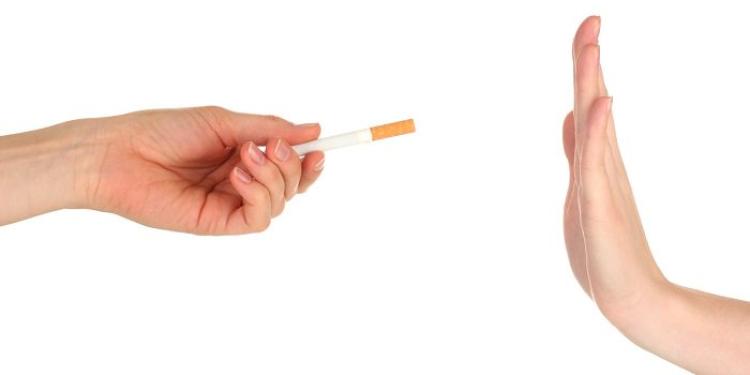Bet On Quitting And The Chances Are You Will
Posted: May 14, 2015
Updated: October 6, 2017

Giving up smoking can be one of the toughest trials of self-control possible but new research shows if you put your own money at risk there’s a far higher chance of success
According to the Centers of Disease Control & Prevention the rate of tobacco related mortality is truly shocking. Responsible for about one in five deaths in the US annually, that’s around 480,000 including 42,000 people who suffer fatal exposure to second-hand smoke, smoking is one of the biggest killers of the middle aged and lessens life expectancy by a clear 10 years. It is quite surprising then that this addictive slow death is still legal at all, isn’t it?
A Stake Helps To Quit
• Study shows deposit assists
• Nearly 50% give up
• Only 6% quit without incentive
The fact that tobacco is taxed, has a political lobby that the Israelis would be jealous of, and can bring massive amounts of money to bear on those who stand in its way, all perpetuates the numbers of people who year in, year out, pass away through smoking related causes. There is no political will to ban it, even if there were the process would be lengthy, expensive and potentially career threatening, and the public perception is easily clouded by an industry with such deep pockets.
One of the defenses for smoking remaining legal at all is the old chestnut about freedom of choice. US gambling laws prevent people from wagering on the deaths of others, but smoking is a gamble on our own mortality that remains entirely permissible. The bans on smoking in places of business that have gone into effect the world over may well cut down the harm to other people, but the smokers of this world continue to gamble with their very health and well being each and every drag they take.
Quitting smoking prior to your forties can cut down the chances of dying from smoking related disease by up to 90%, and I happily encourage every smoker on the planet to put down the death sticks, struggle through the withdrawal and lead a happier, healthier life for having kicked this disgusting, smelly, death tarnished addiction that kills millions of people each year across the globe. That said, if anyone gets between me and my cigarettes I’ll kill every single last one of you.
Cost Benefits Of Quitting

I’ve tried to quit smoking several times with varying levels of success. There’s been the odd two weeks in the new year when I’ve conned myself that I can just give it up, there was the year and a bit I managed, making a concerted effort, for which I was rewarded with stress-based acne that persisted the entire time. A year of having the complexion of a teenager when you’re in your mid-forties is enough for anyone’s ego to prefer the risk of cancer instead.
At my age that means I’m not merely dicing with Death but inviting him round to dinner on a daily basis and spending the entire time telling him how thin he looks, and eventually those nearest and dearest to me will work their way back round to the subject and insist upon my putting down the tobacco once and for all. Whilst there’s obviously patches and gum to help in the end it’ll come down to my determination, my will power, and that might need a bit of assistance.
Providing people assistance in giving up smoking is a bit of a growing trend that has ridden on the back of large scale corporations attempting to cut back on health care costs for their employees, the long term savings of having staff quit all too clear on the bottom line. This means various schemes have been offered to give workers the incentives required to quit. This has often taken the form of a cash payment, or some form of bonus.
However companies have been gambling news of successful quitters will be forthcoming without actually having put much research into just which method of encouraging employees to quit smoking had the greatest rate of efficiency, which gave the greatest help to the individual to kick the habit. A study by the University of Pennsylvania in collaboration with CVS Health, the second biggest drug store chain in the US, has solved that and come up with some interesting results.
High Success Rate, Low Take Up Rate

In the study 1,000 smokers were offered 800 USD to quit for six months, about 90% accepted. Another 1,000 were offered the chance to put down 150 USD of their own money as a deposit and would get back 800 USD in total if they managed to give up for six months, only 14% took up that invitation. A third group of 500 were offered no incentive beyond counseling and nicotine replacement therapies. The results were published in the New England Journal Of Medicine.
The group with the greatest percentage of people who had stayed off for the full six months was, interestingly enough, the ones who had their own money at stake. Nearly a full fifty percent of them managed to get through to the reward, whereas just 17% of the reward-only 1,000 managed to quit for the half year time frame. Those offered no financial incentive performed worst, naturally, with just 6% being able to stay off the loathsome nicotine.
The problem is that whilst having people put some of their own money at risk gives them a far higher chance of quitting, the far lower percentage of up take means that some balance will need to be found, and indeed CVS is rolling out a companywide program for its 200,000 employees that will require just 50 USD deposit but reward quitters with 700 USD after a year. It remains to be seen if 50 USD is a big enough stake to motivate smokers to quit.
Of course there will still be some who don’t wish to give up, fools each and every one of us, and whilst it would probably be best for public health if the habit were banned entirely people must be allowed the freedom to be foolish. After all, people who bet on sports in the US at Bet365 or the like will still wager on the NFL despite clear and manifest cheaters at the very highest levels of the game being let off with measly few matches on the bench, by comparison smoking doesn’t even register on the stupidity scale.












